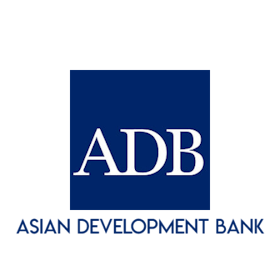The Philippine economy is forecast to grow faster than previously expected in 2022 supported by stronger-than-expected domestic demand spurred by rising employment and a recovery in tourism after the country lifted Covid-19 mobility restrictions, according to a report released today by the Asian Development Bank (ADB).
The latest supplement to the Asian Development Outlook (ADO) 2022 says the Philippine economy will grow 7.4 per cent in 2022, up from the bank’s September forecast of 6.5 per cent. Gross domestic product (GDP) growth for 2023 is expected to slow to 6.0 per cent from the previous forecast of 6.3 per cent.
“The Philippine economy has shown strong underlying growth momentum and resilience in 2022 and this is expected to continue in 2023, with GDP growth converging towards its longer term growth rate of about 6 per cent,” said ADB Philippines Country Director Kelly Bird. “There are downside risks to growth in 2023, including inflation stickiness, further increases in interest rates, and a sharper than expected slowdown in GDP growth in advanced countries.”
Growth in the Philippines will be at the high end of the range as compared with those of its Southeast Asian neighbours. The 2022 growth forecast for the region was raised to 5.5 per cent from the previous 5.1 per cent despite the overall dimmed outlook for Asia and the Pacific, according to the report. GDP growth in Southeast Asia is expected to slow to 4.7 per cent in 2023.
Upward pressures on commodity prices, including oil which will weigh heavily on the predominantly oil-importing Philippines, are expected to be sustained in 2023 with continued uncertainty arising from the Russian invasion of Ukraine. Inflation is expected to quicken to 5.7 per cent this year from the previous forecast of 5.3 per cent before slowing in 2023, with the forecast for next year maintained at 4.3 per cent.
The government has said that it expects to continue to invest on its flagship infrastructure projects to spur employment and lay the foundations for a more vibrant and resilient economy. ADB is helping finance some of these priority projects, such as the Malolos Clark Railway Project and South Commuter Railway Project, both part of the North–South Commuter Railway System that aims to provide a safe, fast, and efficient transportation link between Metro Manila and northern and southern Luzon provinces.
In the capital Metro Manila, ADB is financing the EDSA Greenways Project, which aims to improve and modernise the pedestrian experience along the main EDSA thoroughfare and the Metro Manila Bridges Project, which seeks to help solve traffic congestion in the metropolis, especially in Eastern Manila.
ADB is committed to achieving a prosperous, inclusive, resilient, and sustainable Asia and the Pacific, while sustaining its efforts to eradicate extreme poverty. Established in 1966, it is owned by 68 members—49 from the region.
Publish your content with EB Publishing
It's about who you reach. Get your news, events, jobs and thought leadership seen by those who matter to you.











